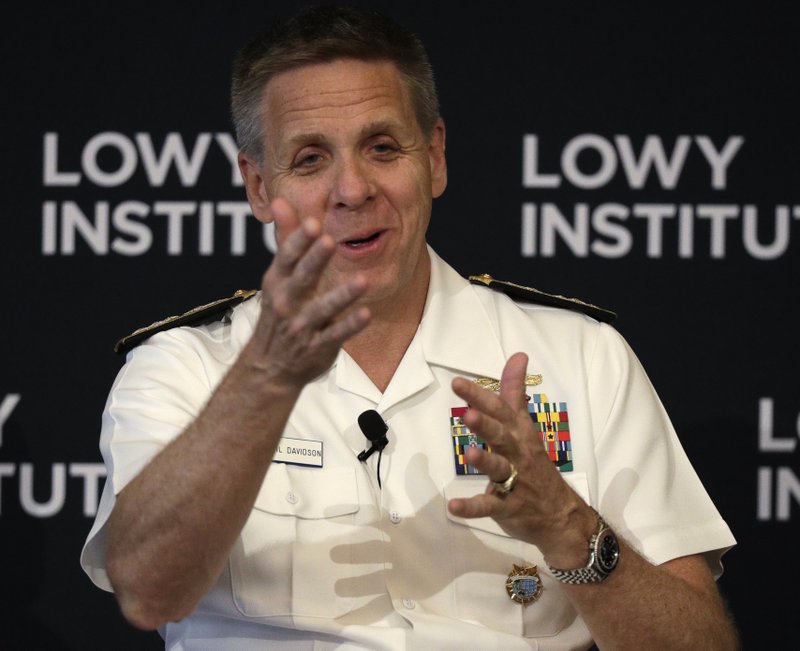CANBERRA, Australia -- The move by the Philippines to end a security pact that allowed U.S. forces to train in the country potentially "challenged" future American operations with Filipino forces, a U.S. admiral said Thursday.
Adm. Philip Davidson, commander of U.S. Indo-Pacific Command, told a foreign-policy think tank in Sydney that he hoped the U.S. State Department would be able to negotiate a solution that would keep the Visiting Forces Agreement in place.
"It's a 180-day notice, so we have some time for diplomatic efforts to be pursued here," Davidson said. "I hope we can get to a successful outcome."
The Philippines notified the United States on Tuesday that it would end the agreement, in the most serious threat under President Rodrigo Duterte to their 69-year bilateral treaty alliance.
In Washington, President Donald Trump, when asked about the Philippines' decision, said "I never minded that very much, to be honest. We helped the Philippines very much."
He added: "We helped them defeat ISIS. I get along, actually I have a very good relationship there. But I really don't mind if they would like to do that. That's fine, we'll save a lot of money. My views are different than other people. I view it as thank you very much, we save a lot of money. But if you look back, if you go back three years ago, when ISIS was overrunning the Philippines, we came in and literally single-handedly were able to save them from vicious attacks on their islands."
A senior administration official said Washington was disappointed.
"The United States shares a long history with the government and people of the Philippines and recognizes that regional and global security is best served through the strong partnership that is enabled by the Visiting Forces Agreement," the official said, speaking on condition of anonymity.
Davidson said the United States did not have such agreements with every country in the region.
"But our ability to help the Philippines and their counter-violent extremist fight in the south, our ability to train and operate within the Philippines and with Filipino armed forces would be challenged without that Visiting Forces Agreement," Davidson said.
American forces have provided intelligence, training and aid that allowed the Philippines to deal with human trafficking, cyberattacks, illegal narcotics and terrorism. U.S. military assistance helped Philippine forces quell a disastrous siege by Islamic State group-aligned militants in southern Marawi city in 2017.
The accord legally allows the entry of large numbers of American forces along with U.S. military ships and aircraft for joint training with Philippine troops. It specifies which country will have jurisdiction over American soldiers who may be accused of crimes while in the Philippines, a sensitive issue in the former American colony.
Duterte often has criticized U.S. security policies while praising those of China and Russia, despite the Philippine military's close historic ties with its American counterpart.
Davidson said countries in the Indo-Pacific region are beginning to take a stand against Chinese attempts to manipulate them through debt-trap diplomacy, coercion and bullying.
All nations in the region were involved in a strategic competition "between a Beijing-centric order and a free and open Indo-Pacific," he said.
Countries that established closer ties to China in expectation of economic growth and infrastructure development "often find themselves worse off in the end," Davidson said.
"Through excessive territorial claims, debt-trap diplomacy, violations of international agreements, theft of intellectual property, military intimidation and outright corruption, the Communist Party of China seeks to control the flow of trade, finance, communications, politics and a way of life throughout the Indo-Pacific," Davison said.
China has scoffed at what it calls U.S. interference in the Asia-Pacific region and has denied linking aid to politics.
A Section on 02/14/2020
